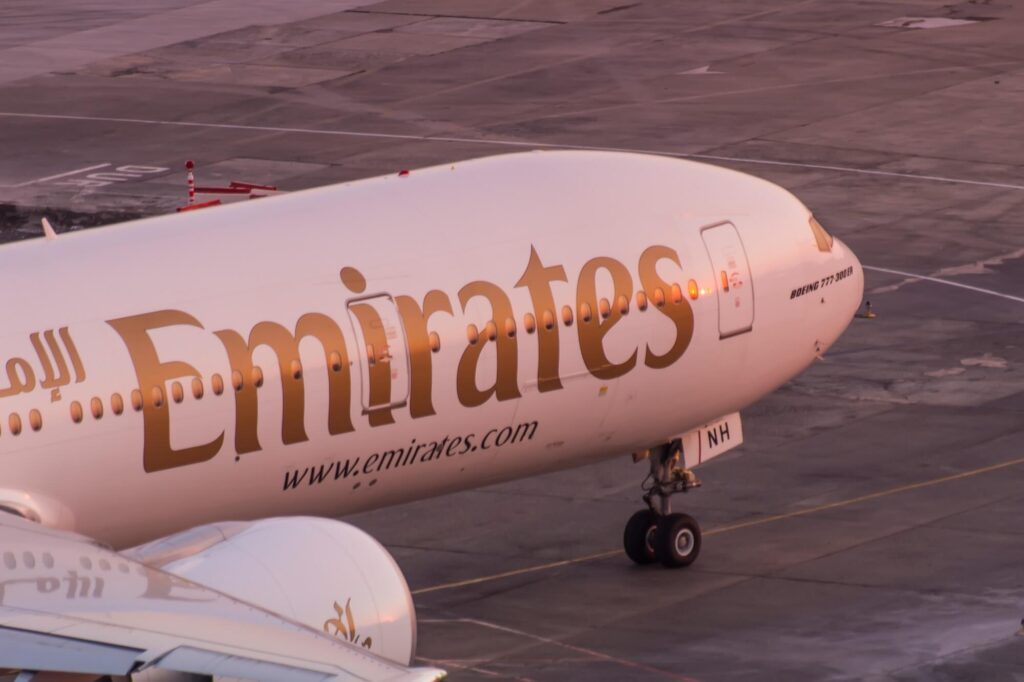Announcing a “record performance”, Emirates insisted that no new aircraft will be delivered to the airline until 2024, which is why the Dubai, United Arab Emirates (UAE)-based carrier has been retrofitting its current jets with a new in-flight product.
Finishing its financial half-year on September 30, 2022, the group, which includes the airline and ground handling company dnata, managed to reach a net profit of AED4.2 billion ($1.2 billion), a “record half-year performance.”
The company managed to complete quite the turnaround, as, during the same period in FY2021-2022, the group’s loss was as much as AED5.6 billion ($1.6 billion).
Notably, the flag carrier of Dubai managed to increase its cash reserves by AED6.8 billion ($1.85 billion) between March 31, 2022, and September 30, 2022, finishing the financial half-year with cash reserves of AED32.6 billion ($8.9 billion).
Emirates, however, has remained cautious, especially as fuel prices “more than tripled compared to the same period last year”. The company continued that “the largest component of the airline’s operating cost in pre-pandemic reporting cycles, accounted for 38% of operating costs, one of the highest ratios ever, compared to 20% in the first six months of last year.”
At the same time, as demand for air travel grew, capacity subsequently followed, with a 123% increase in Available Seat Kilometers (ASKM). Overall capacity, which includes cargo operations and is measured with Available Ton Kilometers (ATKM), expanded by 40%.
By the end of its fiscal half-year period, Emirates operated all of its Boeing 777 aircraft and 73 Airbus A380s to 140 airports across the globe. The latest data from planespotters.net showed that 78 Airbus A380s are now in service, as travel demand continues to recover.
No immediate Emirates fleet changes
While the airline still has aircraft parked in storage – according to planespotters.net that includes 41 A380s – it does not expect to receive newly-built metal until at least 2024, which is why Emirates is investing in refreshing its cabin product throughout its fleet.
“With new passenger aircraft only expected to arrive in 2024, Emirates this month began its multi-billion dollar programme to retrofit 120 aircraft with its latest cabin interiors and products,” the company noted in its financial results release.
“Emirates continued to introduce new product and customer initiatives to deliver on its ‘fly better’ promise, including enhanced menus across all cabin classes, and the launch of a new hospitality programme to uplift service training and delivery,” the statement continued.
The first aircraft that the airline chose to refresh was an A380, registered A6-EVM, fitting it with a upgraded interior, including the new Premium Economy cabin. The aircraft was pulled out of service on November 1, 2022.
The current backlog associated with the airline includes aircraft from Airbus and Boeing, including 50 Airbus A350-900, 115 Boeing 777X, and 30 787-9s, per both manufacturers’ Orders and Deliveries data. Five more Boeing 777 freighters were ordered in October 2022, with the deal being announced on November 8, 2022.
None of these are scheduled to arrive before 2024, including the five freighters. Emirates plans to finish its retrofit program by March 2025, when all 120 aircraft (67 A380s and 53 B777s) will have the new cabin and will begin carrying passengers.
Cautious outlook
Looking forward, despite what the group hailed as a record-breaking half-year result, the airline’s chief executive expressed that this is not the time to sit back.
“For the coming months, we remain focused on restoring our operations to pre-pandemic levels and recruiting the right skills for our current and future requirements. We expect customer demand across our business divisions to remain strong in H2 2022-23,” said Sheikh Ahmed bin Saeed Al Maktoum, chairman and CEO of Emirates Airlines.
However, according to Al Maktoum “the horizon is not without headwinds, and we are keeping a close watch on inflationary costs and other macro-challenges such as the strong US dollar and the fiscal policies of major markets.”
Nevertheless, the executive anticipated that in the remaining six months of FY2022-2023, Dubai’s crown jewel airline will remain profitable, as both the airline and dnata continued to recruit more staff to support its future growth requirements.
